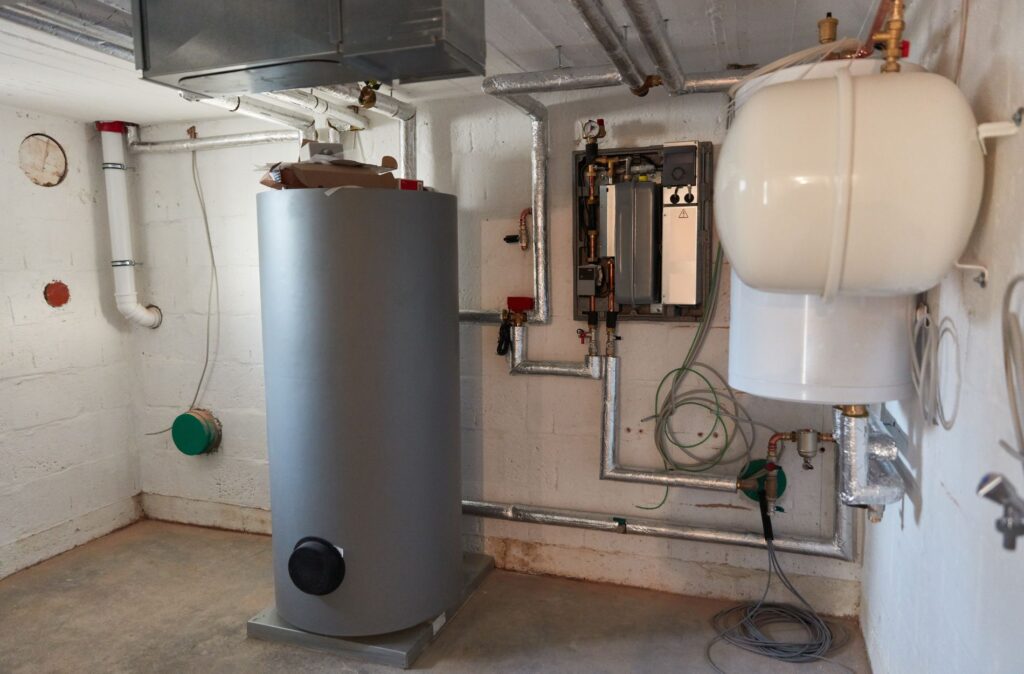A dependable boiler is essential for maintaining warmth and comfort in your home, especially as the colder months approach. However, over time, even the most reliable boilers face wear and tear, which can affect their efficiency and functionality. Recognizing when it’s time for a boiler replacement can prevent unexpected breakdowns and ensure your home remains comfortable.
Signs Your Boiler Needs Replacement
Age of the Boiler
A boiler’s age is a critical factor in determining when it might need replacement. Most boilers have a life expectancy of 15 to 20 years. As they age, their efficiency tends to decline, resulting in higher energy costs and increased wear on the system. Older boilers may not incorporate the latest energy-efficient technologies, potentially leading to higher utility bills. Keeping track of your boiler’s age helps in planning for future replacement and avoiding unexpected breakdowns.
Frequent Breakdowns
Frequent breakdowns are a clear indication that your boiler might be nearing the end of its operational life. If you find yourself calling for boiler repair more often or experiencing persistent issues, it might be more cost-effective to consider a replacement. Recurring problems can be frustrating and costly, especially if they occur during the colder months when a reliable heating system is most needed. Evaluating the frequency of repairs can help you decide if investing in a new boiler is a more practical choice.
Evaluating Efficiency and Performance
Rising Energy Bills
An unexpected rise in energy bills is often a sign that your boiler is not operating efficiently. As boilers age, they lose efficiency, which means they work harder to produce the same level of heat, leading to increased energy consumption. Rising costs without a change in heating habits should prompt a closer look at your boiler’s efficiency. Addressing this issue can lead to significant savings and improve the overall comfort of your home.
Inconsistent Heating
Inconsistent heating is another indicator that your boiler might be failing to meet your home’s requirements. If you notice certain rooms are colder than others, or if your boiler struggles to maintain a consistent temperature, it may be time for an assessment. Inconsistent heating can be caused by various factors, including outdated technology, system blockages, or failing components. Ensuring your boiler provides consistent heating is essential for maintaining comfort during colder periods.
By identifying these efficiency and performance issues early, you can make informed decisions about whether a boiler replacement is necessary. Our professionals are equipped to evaluate your current system and recommend solutions that enhance your home’s heating efficiency.
Cost Considerations for Replacement
Comparing Repair and Replacement Costs
When deciding whether to repair or replace your boiler, it’s essential to weigh the costs. Frequent repairs can quickly add up, sometimes surpassing the cost of a new boiler installation. A general rule is to consider replacement if repair costs exceed a significant portion of the price of a new unit. It’s also important to factor in the age and condition of your current system. If the repairs are becoming more frequent and costly, replacement might be the more economical choice long-term.
Potential Savings with Newer Models
Investing in a new boiler can lead to substantial savings. Modern boilers are designed with advanced technology that ensures higher efficiency, translating to lower energy bills. While the upfront cost of a new boiler might seem high, the savings on operating costs over time can offset this initial investment. Additionally, many modern models offer improved performance and reliability, reducing the likelihood of expensive repairs in the future.
Benefits of a New Boiler Installation
Improved Efficiency and Reliability
A newly installed boiler typically offers superior efficiency compared to older models. It can maintain your desired temperatures more accurately without overworking, leading to less energy consumption and reduced utility costs. Improved efficiency ensures consistent heating throughout your home, providing comfort and reliability. A new boiler minimizes the risk of unexpected breakdowns, offering peace of mind during the colder months.
Enhanced Safety Features
New boilers come equipped with advanced safety features that protect your home and its occupants. These features include better controls, fail-safes, and improved sensors that detect potential issues before they become serious problems. Enhanced safety features provide an extra layer of protection, ensuring your boiler operates safely and efficiently. By upgrading to a new boiler, you can also take advantage of warranties that cover parts and labor, further protecting your investment.
Conclusion
Understanding when to replace your boiler involves evaluating several factors, from age and breakdown frequency to efficiency and costs. Recognizing these signs early can prevent inconvenience and additional expenses down the line. A new boiler installation offers a host of benefits, including improved efficiency, lower energy bills, and enhanced safety features. Making the decision to replace your boiler can enhance your home’s comfort and safety while providing long-term savings.
For those considering a boiler replacement in Hopkins or needing professional advice, Midland Heating & Cooling has the expertise to guide you through the process. Our professionals can help assess your current boiler and recommend the best solution tailored to your needs. Contact us today to schedule a consultation and ensure your home remains warm and efficient with a new boiler installation.


